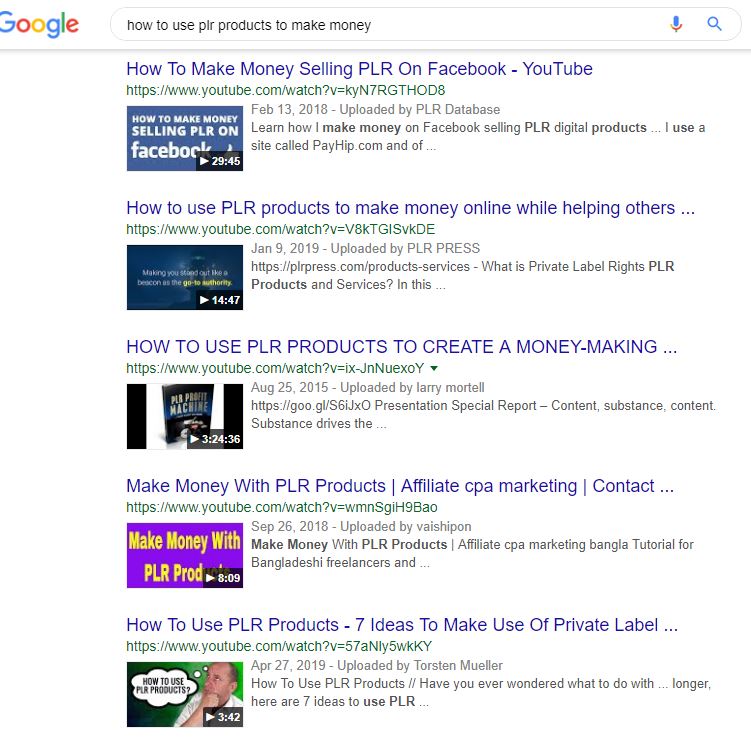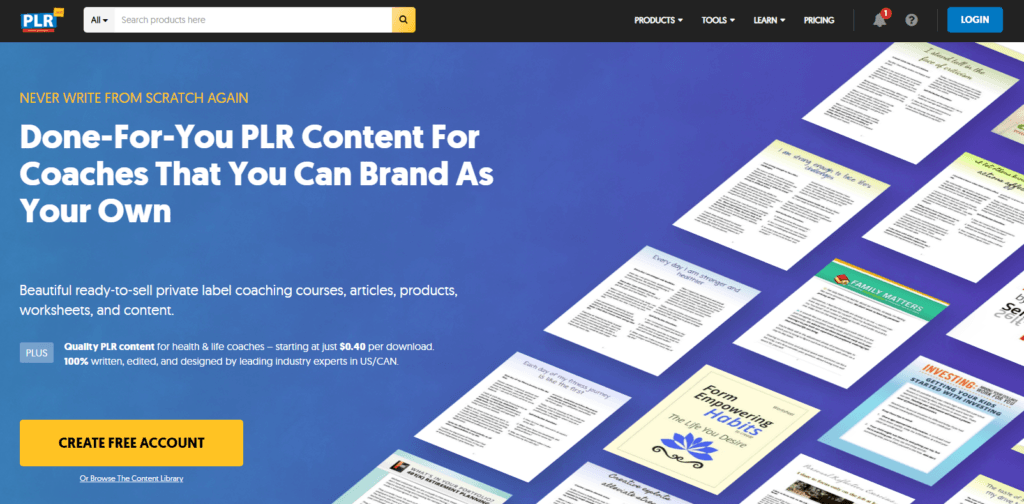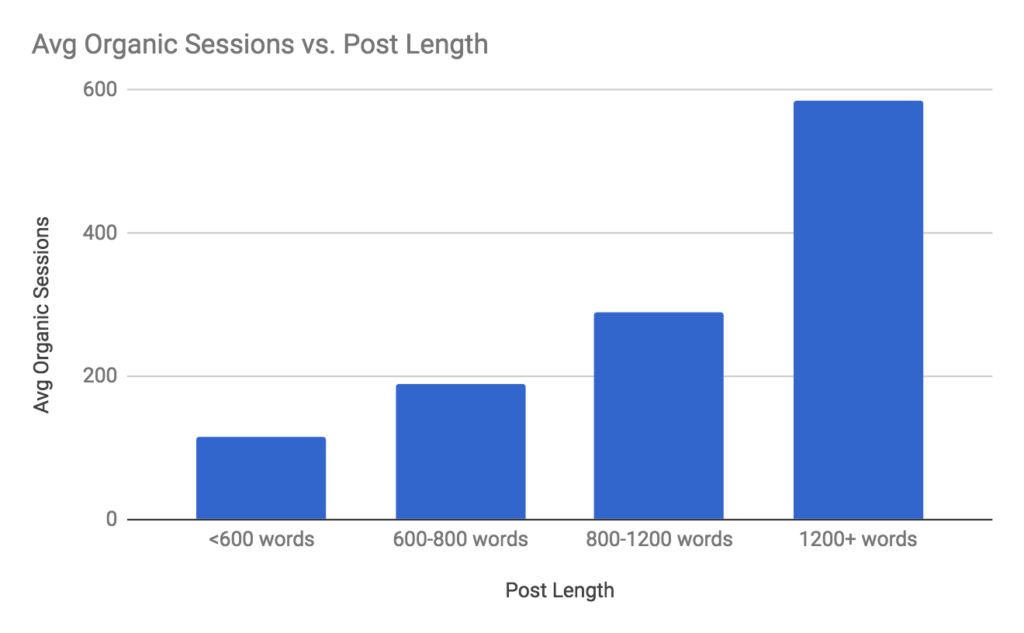You and I both know that creating content for marketing takes time. It would be nice to get some help from somewhere so, should you buy PLR articles instead? I’ve thought about this before and have used something similar, but soon found out that it’s quite a risky business. Here’s why.
What are PLR Articles and Why Do People Use Them?
First and foremost, Private Label Rights (aka PLRs) is a licensing term used for labeling digital products and it should not be mistaken with the other two licenses.
Resale Right (RR) license allows you to sell the products as it is without making any changes. Meanwhile, Master Resell Right (MRR) license lets you sell the products, without changes AND pass the rights to the customers to resell the same thing.
The one that has the most flexibility is the PLR license because it allows editing, modifying or combining with other products and then reselling under your own brand name. The only downside is that you can’t claim the copyright because the product is also available to other people.
In the case of PLR articles, it is basically prewritten digital content that can be bought online and republished as blog posts, marketing materials or repackage into eBooks, special report or online tutorials.
Such practice has been around since the dawn of the internet and despite the many Google updates advocating the importance of original content, numerous blogs and videos are still teaching people how to make money with this product as of 2019.

Clearly, there is sizeable market demand, otherwise, no one will be searching for it. If anything attracts you to PLR articles, it’s probably due to one of the following reasons;
- Fresh content is crucial for marketing. From blog posts to sending out emails, your plate can be full of various writing projects that will never meet the deadline because you can only do so much in a day. Everyone knows that it takes a full day to write a well-researched 2500 words article – who has that kind of time when there are so many things to manage, right?
- You’ve probably experienced this more than once – staring at a blank screen and nothing is coming out from your mind. Writer’s block is very frustrating to deal with and it could suck the productivity out of your schedule if you don’t plan ahead.
- You have more than one niche website that requires an equal amount of content investment so it’s challenging to keep up with the work. Imagine writing about topics in Niche A and Niche B back-to-back. You are going to stretch yourself thin.
- You are looking for more content ideas for general topics to build good internal linkings and niche authority. With so many PLR articles to choose from, you are likely to find something interesting.

- Hiring a professional writer is likely out of your budget at this point. They usually cost between $30 to $50/hour, so unless your site is bringing in a handsome profit or you are willing to invest more money, you are pretty much on your own.
Overall, using PLR in these situations can dilute the tedious process of content creation. In return, your precious time and effort can be channeled into other aspects of your online business.
Where Can You Get Them?
Prewritten articles are generally inexpensive, so much so, you can even get them for free – initially anyways. While most sites do not ask for payment upfront, they will ask for your email address in exchange. It’s like joining a membership with a free account that gives you access to some basic stuff and later promotes other products in the future.
There are also offers on internet marketing forums that will lead you to products created by a particular blogger or freelance writer who are looking for leads. This can actually give you an idea about the identity and the skills of the writers, something that isn’t as transparent with public sites.
Other times, the offers come from affiliates who market the use of PLR products online. Remember all the YouTube videos I mentioned earlier? They are likely affiliates earning commissions from the following sites.

- PLR.me – Get two free downloads per month. Their membership fee range between $22 to $990 depending on monthly or annual plans. The affiliate offer is 40% on all monthly plans and pay-as-you-go credits and 30% on all annual plans. The application for the program is by invitation only.

- IDPLR.com – Create an account to download 220+ free products. The membership fees are $39 (for 3 months), $69 (for 1 year) and $89 (for lifetime access). The affiliate offers are 20 cents for free member referral and 35% for membership sales. The application is through the Clickbank marketplace.
- Indigitalworks.com – Create an account to access 200 free products. The membership costs $39 (for 3 months), $69 (for 1 year) and $79 (for lifetime access). The affiliate offers are the same as IDPLR plus 10% for the second-tier commission. That means you make commissions from your referred members who become affiliates themselves too.
Another place to get them is through service marketplaces like Fiverr. These products aren’t free, but they are often sold for cheap, within the range of $5 to $25 per package. And that brings me to the next point.
Have you ever considered the quality of these products? Do you know what they look like? More importantly, are you aware of the dangers of using PLR articles as it is? Let me give you a few heads up.
The Risks of Using PLRs
The main problem here is that anyone can buy and republish PLR content. It’s almost like content regurgitation so say, even though a product is only limited to 50 buyers, there are still 49 people who are potentially sharing the same content as you.
And that poses a big problem – content duplication. In Google’s eye, copy-cat content doesn’t offer value so it carries lower merit. So, either one of the sites is going to perform better than the other or in the worst-case scenario, both sites will be demoted from their rankings, if they achieve any at all.
Another thing is plagiarism. For all you know, the anonymous writer is someone who copies someone else’s work online and sells it for a profit. In such cases, you can get into legal trouble if the original creator finds out. That’s so not cool because that wasn’t your intention in the first place.
And then there’s the quality of the content to consider. Is it written by a native English speaker? How many numbers of words are you paying for the package? If someone specific is promoting the product, you should be able to guess the language power.
As for the number of words, it would be a tall order to wish for a long article. In most cases, you are likely getting 500+ words per content or less. It may work if you are compiling multiple topics in an eBook, but if your goal is to get higher rankings on Google, you’ll be disappointed.
By standards, most pages that are dominating the top spots nowadays have an average of 2,500 words or more. That’s almost 5 times the length of a typical PLR article. That means you still need to ‘top-up’ on the content with your own words or work on some kind of combination strategy.

Now, for product reviews or the latest trend topics, it is very unlikely that you will find them in a PLR package. It’s not practical to have prewritten reviews because product features changes all the time. Since most articles don’t get updated once they are put up for sale, the person who should be doing the job is you – the buyer.
So, Should You Buy PLR Articles?
Using PLR is a much-debated topic in the past (and still is today), but I think the industry is changing. Due to the intensity of digital content consumption, there’s a need to acquire content from elsewhere beyond your capacity.
For that purpose, I think the product can play a supportive role rather than a harmful one. The key point here is to use PLR the ‘smart way’ without backfiring your time and money.
- Get keyword ideas and content inspiration
- Use it as a structure to build your own original content that offers more value.
- Inject your own voice, personality, and expertise so that it engages naturally with your audience.
- Don’t take the short-cuts, no matter how tempted you are.
If cost isn’t a problem and you are willing to work through the steps, buying PLR articles is no different than researching for content ideas to help build and grow your business. If you find the work redundant and doesn’t produce a desirable result, then you are probably better off writing your own content. That’s something you need to figure out for yourself.
Don’t naively believe that you can easily make money with PLRs, yet at the same time, don’t treat it as something toxic that must be avoided entirely. Experiment with the idea and see what it can AND can’t do for your online business while adhering to the fundamentals of modern marketing.
After reading this, I hope you are now better informed as to whether you should buy PLR articles or not. For more tips on how to start and grow a successful online business, join me at this awesome training platform to learn more.
Have you had any experience using PLR for publishing content? Please share your comments and questions down below.

I am a strong believer in building a relationship with my visitors and this is best accomplished through articles written by myself. True, this can be difficult when ideas do not come easily to mind.
If I really want to take a faster route, I would pay for an experienced writer. That at least would give me some peace of mind in terms of work quality, authenticity, and not to mention, frees up my time to focus on other aspects of the business.
For the moment, however, I think I will stick to writing articles by myself.
To be honest I didn’t know much about PLR’s until I read your post. I guess I don’t have a problem with writing my own content. I normally research online and write my own.
I think it is important that as a writer you have your own style. People usually enjoy reading different styles. I guess it is like everything else in life, variety is the spices of life. So trying to be someone else when you write is not a good thing. People and Google will pick up on it.
If writing takes too long and you struggle with it, you know what they say – practice makes perfect. The more you immerse yourself, the better you become.
After reading this, I feel like I have a better grasp of what PLR products are all about. Since I am still fairly new to content marketing, I would much rather buy it for research purposes. Don’t want to get smacked by Google for doing the wrong thing. Thanks for being honest about this one.
Hi Cathy!
Your article is the eye-opener I have been looking for! I’ve been blogging for about 2 years now and one of the things that I found really frustrating is not being able to produce like other bloggers out there that write 2 or maybe 3 articles – in one day! I always wondered: how in the world do they do it? Now I know, thanks to your article. I finally feel I’m doing things right: 2,500 words per article, well researched, in one day, sounds just about right. Thank you so much for shedding light on this subject for me.
In my experience, PLRs vary wildly in quality. It usually depends on who’s providing the PLR content and whether he/she is actually the person creating the original content. I do know that PLR ME, IDPLR, and Indigitalworks provide ‘unique’ PLRs, though I don’t know whether they limit the number of copies they sell to the masses (to preserve quality and prevent too many duplicates).
It’s kinda’ weird coz’ I feel guilty when you talked about affiliates who market PLR products online. Truth is, I’ve made heck a lot of money just by promoting PLR’s alone as an affiliate. I think it happened because the topic behind the PLR is trending back then. It didn’t matter whether I used the PLR for myself, people were simply buying thru my link like crazy!
So yeah, it made me ‘biased’ in that aspect without knowing the consequences of my actions. Thankfully, your article shed light to the truth behind PLRs, making me contemplate whether I should still continue promoting it or not.
Hi Dominic. At this time and age, I don’t think it’s entirely wrong to promote PLRs. For beginners, they might serve as a good template to create content. Just don’t abuse the licenses and always think about how it could affect/benefit your readers.
Thanks, Cathy, for shedding light on this topic.
I’ve been aware of PLR but never used it so far. I’d wondered about PLR articles and thought that it is surely plagiarism and bad for your site. Fair enough as repackaged eBooks but I never thought to republish as blog posts was a good idea.
Now that I am aware of the risks of using PLRs, plagiarism and the legal risks are scary indeed. Yes, it does take a full day to write a well-researched 2500 words article. Mine are often longer and I’m struggling to finish one per week as I’m a part-time blogger.
So, it’s quite interesting that PLR content can play a supportive role and can be used in better and legit ways for one’s content creation process. Just wondering, have you used any PLRs, repurposed and published it on your site? If so, which is the best source?
No, I haven’t John but I will in the near future because I am actually running out of ideas on what to write besides product reviews. I need some kicks to my usual flow of thought and I believe PLRs could do the trick. Will keep you posted.
Thanks for providing information on different licensing rights. This is something new to me as I’ve only been in online business for more than a month. Do you suggest obtaining PLR for a beginner? It sounds really helpful so I would check on the PLR sites you’ve mentioned. IDPLR and Indigitalworks seems to give a good offer of free downloadable free products that I wanna try first.
Hi MissusB. It’s okay to go through PLRs for topic ideas and see how content is written in a good (or bad) way. You can learn a lot of things from there as a beginner. Just don’t use the whole content – word for word – as it is.